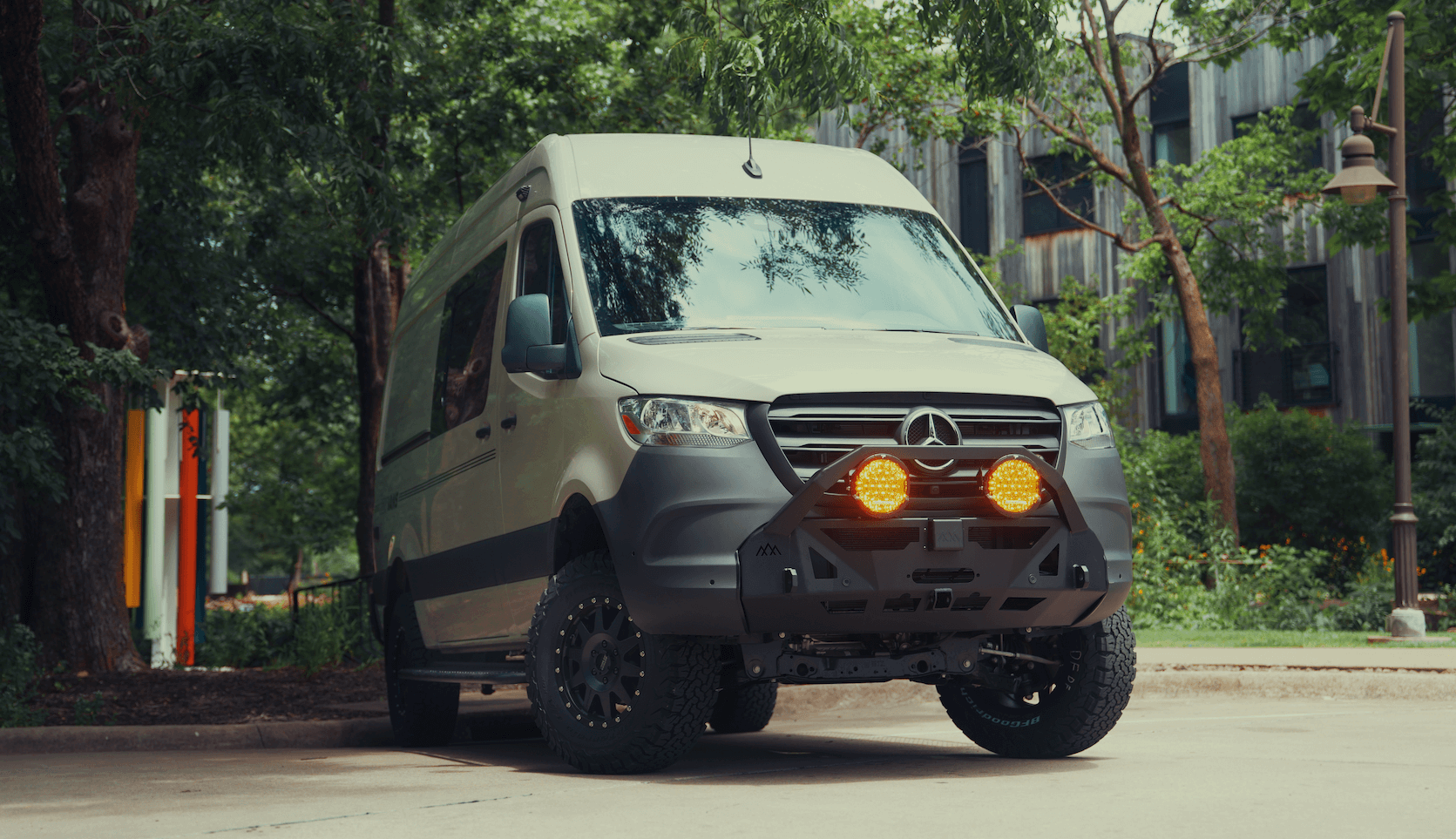Recreational Vans

Fleet lease return vans are workhorses rotated out of service on fixed schedules. Large companies and agencies lease a batch, follow structured maintenance, and decommission them at set mileage or age. That consistency makes lease returns predictable to shop and easy to compare.
The appeal for conversion is simple. You can find high roof cargo bodies, straight frames, and honest maintenance logs at accessible pricing. You also see repeated spec packages within model lines, which simplifies parts sourcing and future service. Typical candidates include full size cargo platforms with varying roof heights and wheelbases that accommodate living systems, gear storage, and commercial interiors.
Common advantages include documented service, fleet spec durability, and conservative pricing. Common drawbacks are cosmetic wear, idle hours in city duty, and holes or traces from previous upfits. The best value sits where the body is clean, service is verifiable, and the spec matches your intended layout.
Start with verification. Confirm the VIN, title status, and any open recalls. Pull service history from fleet portals or dealer networks when possible. A clean paper trail shortens guesswork.
Focus your inspection on five areas.
Powertrain health
Look for smooth cold starts, stable idle, and clean shift behavior. Compare odometer miles with engine hours. High hours with lower miles can signal heavy idling that affects wear differently than highway miles.
Cooling and electrical
Cooling systems reveal how hard the vehicle worked under load. Check for clean coolant, uniform temperature behavior, and fan operation. On electrical, scan for aftermarket wiring remnants and test alternator output at idle and under load.
Suspension and steering
Test for play, clunks, and uneven tire wear. Fleet loads can fatigue bushings and ball joints. A tight steering feel and even tread patterns suggest a chassis that stayed aligned and balanced.
Body and frame
Measure door openings, check drip rails and roof seams, and inspect the rear crossmembers. Surface rust is common but manageable. Structural corrosion, roof leaks, and rippled sills add cost and risk.
Interior shell
Bare cargo shells tell the truth. Look for holes from removed partitions or racks, moisture staining, and signs of previous water entry around windows and roof points. Fewer penetrations equal easier sealing and insulation later.
Prioritize vehicles with consistent oil intervals and documented transmission service. Diesel platforms may show emissions system work; factor this into budget and future maintenance. A pre purchase scan for stored codes helps reveal intermittent issues. If the engine or transmission was replaced, request receipts and verify mileage on components.
Match wheelbase and roof height to your floor plan. Extended wheelbase helps with larger galleys and dedicated sleeping areas but affects departure angles and parking. High roof enables stand up comfort and upper cabinet runs. Payload and gross vehicle weight rating must cover your build plus water, gear, passengers, and seasonal items. Drivetrain and tire sizing influence ground clearance, winter traction, and tire availability on the road.
Plan a mechanical refresh before insulation and paneling. Common items include fluids, filters, belts, brake pads, tires, and suspension bushings. Address rust and seal penetrations before adding finishes. Confirm emissions and safety compliance for your home state, and check weight class or commercial designation rules if you will carry tools or goods for business use. Insurance underwriters appreciate documentation of professional wiring standards and safe mounting of propane and batteries.
Sourcing channels include fleet remarketing auctions, dedicated fleet resellers, and dealer off lease programs. Ask about buybacks or disposition notes that explain why a unit was retired. Vehicles retired for age with clean service are often better bets than those retired for damage.
Budget with the full project in mind.
Purchase price and fees
Include taxes, title, transport, and a pre purchase inspection.
Mechanical refresh
Set aside funds for tires, brakes, fluids, and known wear items that reset the clock on reliability.
Conversion scope
Off grid power, climate control, cabinetry, plumbing, and recovery gear change both cost and payload. Build only what supports your use case so you keep weight and spend aligned.
Contingency
Reserve a buffer for surprises. Small fixes early prevent expensive rework late in the build.
A simple rule helps decision making. If the van needs serious body or frame repair, walk away. If it needs normal wear items and light cosmetic clean up, it is likely the right canvas.
A solid lease return earns its keep only when the build is quiet, safe, and functional. Professional layout design, proper weight distribution, clean electrical, and ventilated heating or cooling make the difference between a weekend novelty and a daily driver that works anywhere.
If you are considering a purpose built interior, review example projects and ask about insulation strategy, sound control, wiring diagrams, and water system winterization. Request timelines and communication cadence before work begins so you can plan travel and pickup.
Explore OZK Customs services to see what a professional conversion looks like in practice. See our platform overview on Recreational vans. For a completely tailored interior and systems package, learn about our Custom build van process. If you want a finance friendly starting point with a clean canvas, explore Mainstream vans we support for conversions.
Closing thought. The right fleet lease return van is the one that matches your layout, clears your weight math, and passes an honest inspection. Get those pieces right, and the conversion becomes a straightforward path to a reliable travel or work rig.
Tell us about your lease return candidate and your goals. We will map a conversion plan, quote timelines, and guide you from handoff to a fully sorted van that feels right from the first mile.
Ready to turn a lease return into a capable adventure or work van? Tell us your goals and timeline. OZK Customs plans, builds, and delivers dialed conversions with clean fitment, quiet cabins, and reliable systems. Start your build plan now.
ADDRESS:
6159 E Huntsville Rd, Fayetteville, AR 72701
PHONE:
(479) 326-9200
EMAIL:
info@ozkvans.com